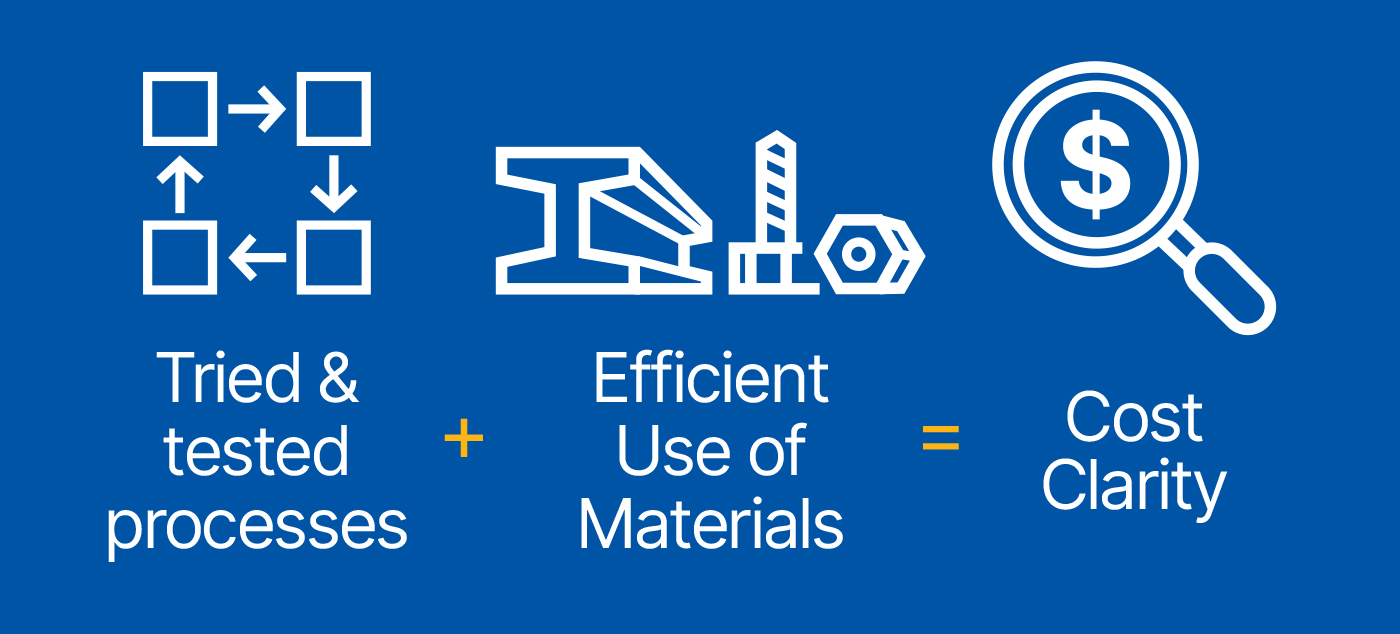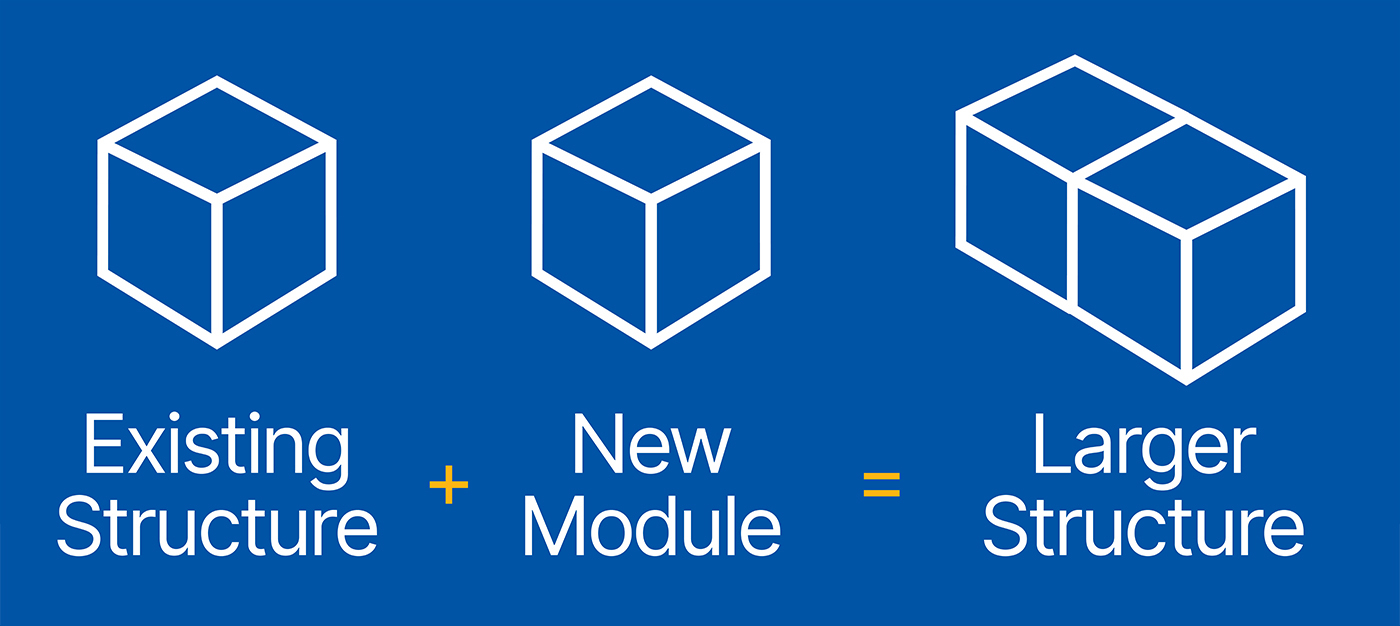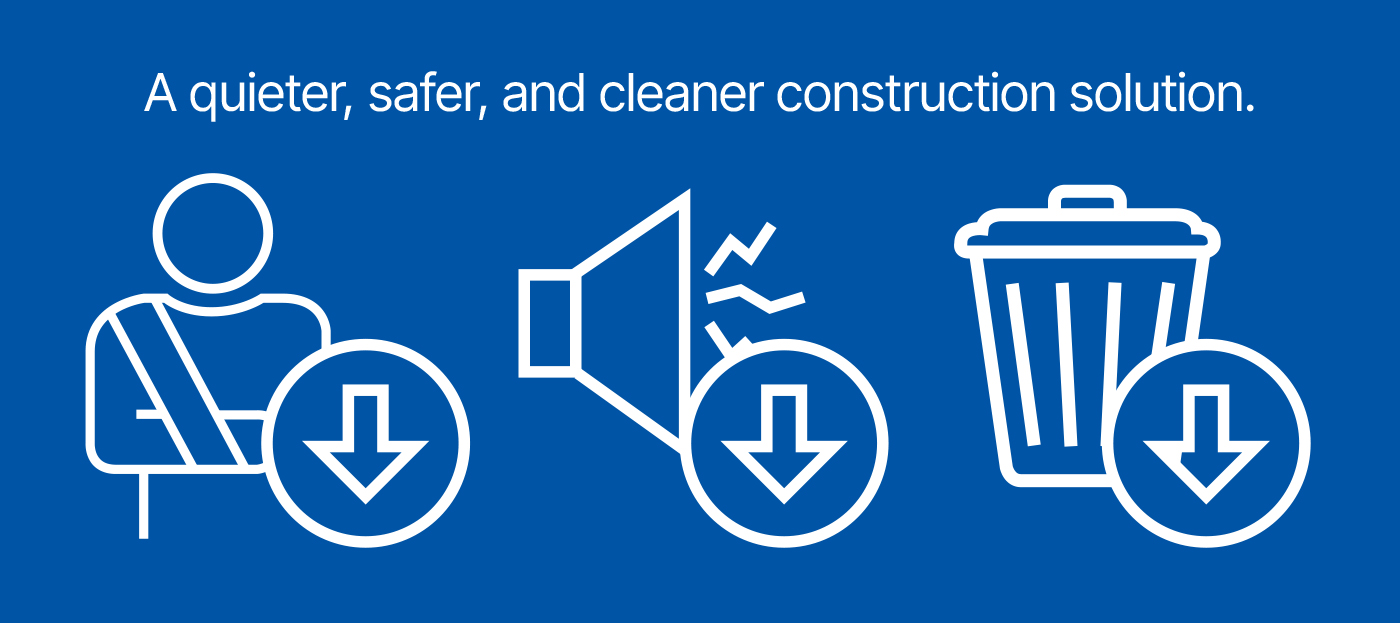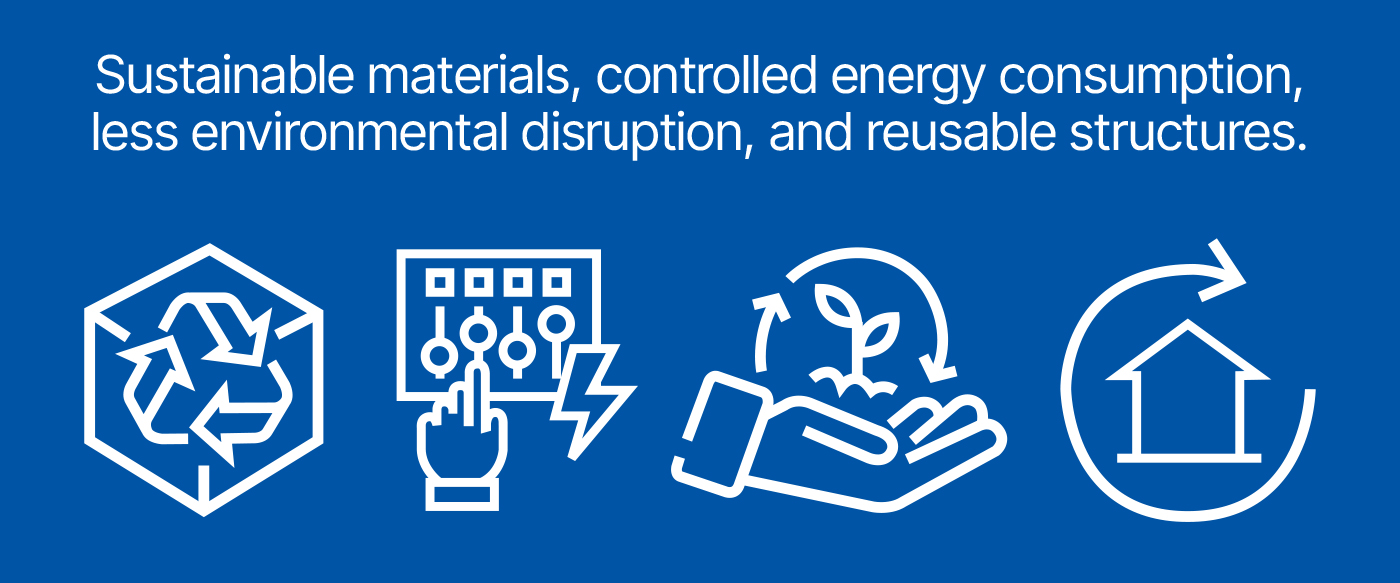7 Benefits of Modular Construction
Today’s modular construction methods deliver more than temporary boxes, with thin walls, and construction defects. There are countless applications for modular building solutions – from residential housing to commercial business premises or complete remote workforce communities to medical facilities and schools.
Gone are the days of modular structures that lack strength, style, and longevity. Today’s modular buildings are robust, architecturally designed, and built using the same materials as traditionally constructed buildings to the same NCC building codes. Not to mention the following additional benefits received by those who choose modular construction.
Modular Construction Benefit #1: Speed to Market
Modular construction offers the advantage of a reduced construction schedule, getting you into your new building sooner. The process of preparing the installation site and manufacturing the building modules (exterior and interior) takes place concurrently (as opposed to traditional on-site sequential construction methods) resulting in a reduced overall construction time of about 30-50%. Factory-built modules are completed inside and out removing the need for interior finishing to happen after the structure has been installed.
Additionally, the factory environment is quality-controlled reducing the risk of environmental damage to the structure that may cause time delays in construction.

Modular Construction Benefit #2: Cost Clarity
The use of lean manufacturing methods and repeatable designs means pricing is fixed prior to purchase reducing the risk of cost increases and additional expenses while allowing you to make informed decisions about budgets.

Modular Construction Benefit #3: Flexibility and Scalability
The flexibility of modular buildings means they are easy to relocate, allowing you to move and reuse them where and when they are needed. Modular buildings can be extended to accommodate business growth and designed to fit in with existing infrastructure.
Modular buildings are ideal for temporary applications and are often used as pop-up real estate offices, classrooms, emergency facilities, construction site compounds, and event amenities. Permanent applications include school facilities, medical centres, childcare centres, nursing homes, community centres, sports facilities, and more.

Modular Construction Benefit #4: High-Performing Buildings
Modern modular buildings perform and look as good as traditional on-site constructed buildings and are manufactured using the same robust materials. This means a modular building will withstand the tests of time and can be designed to harmonise and blend in with existing structures.
Our modular buildings are designed and engineered to withstand harsh Australian conditions including cyclonic winds, hot dry heat, torrential rain, and chilly winter weather. Air conditioning/heating, insulation, strong steel frames, and aluminium window frames, are a few points on the extensive list of modular building features, ensuring comfort and efficiency in any location.

Modular Construction Benefit #5: Guaranteed Quality
Manufacturing facilities at ATCO Structures, run to a strict quality control regime. Building modules are manufactured indoors under controlled conditions, shielded from rain, wind, and other elements. Materials are stored and used in dry, moderate temperatures eliminating environmental effects that would lead to unnecessary waste or a poor-quality end-product. Qualified tradespeople work in a clean and consistent environment with good light and efficiently designed processes. Modular manufacturing methods facilitate construction quality guaranteed to ensure client satisfaction.

Modular Construction Benefit #6: Less Disruption
Traditional construction methods require a complete team on site for the full duration of the project resulting in noise, dust, and waste. Not to mention the continual coming and going of tradies, materials, and machinery. By choosing modular construction, the manufacture of your structure takes place in the factory resulting in minimal disruption throughout the site development and module manufacturing process. This also reduces safety risks for civilians in the area and disruption to the environment surrounding the installation site.

Modular Construction Benefit #7: More Sustainable
Modular construction methods produce less greenhouse emissions than traditional construction methods. Tried and tested processes mean reduced waste and more efficient use of resources resulting in a more economical construction solution. The flexible nature of modular buildings makes them relocatable and extendable removing the need to demolish and rebuild, you can simply extend existing infrastructure.
Studies show that modular construction is carbon-generative when compared to traditional construction methods, due to factory-controlled manufacturing processes, incorporating the use of sustainable materials, optimised material usage, controlled energy consumption during manufacture, and efficient transport of completed modules.
In addition, modular construction reduces environmental disturbances at the installation site such as sound pollution, soil erosion, and damage to the local ecosystem.

Modular construction delivers a fast, flexible, less disruptive, and sustainable solution for permanent or temporary buildings that can be used in all industries. To learn more about the benefits of modular construction contact your local ATCO Structures Sales Branch.